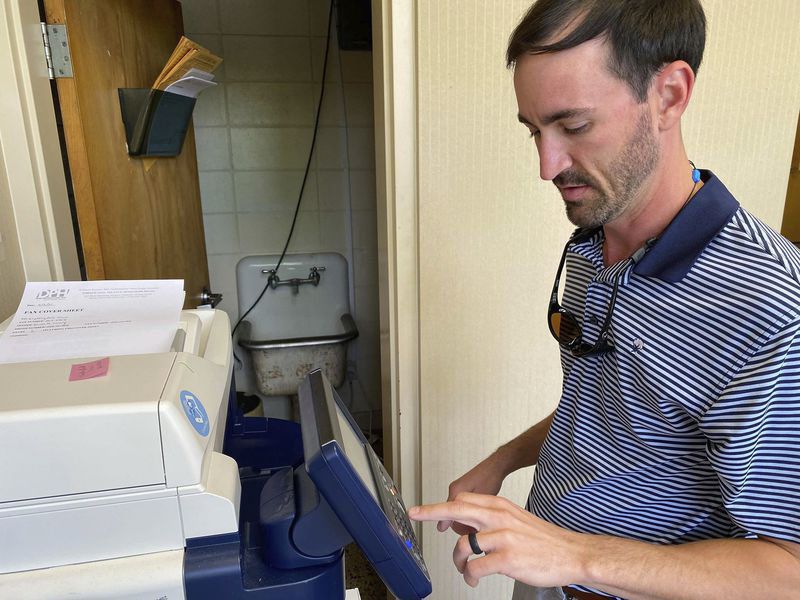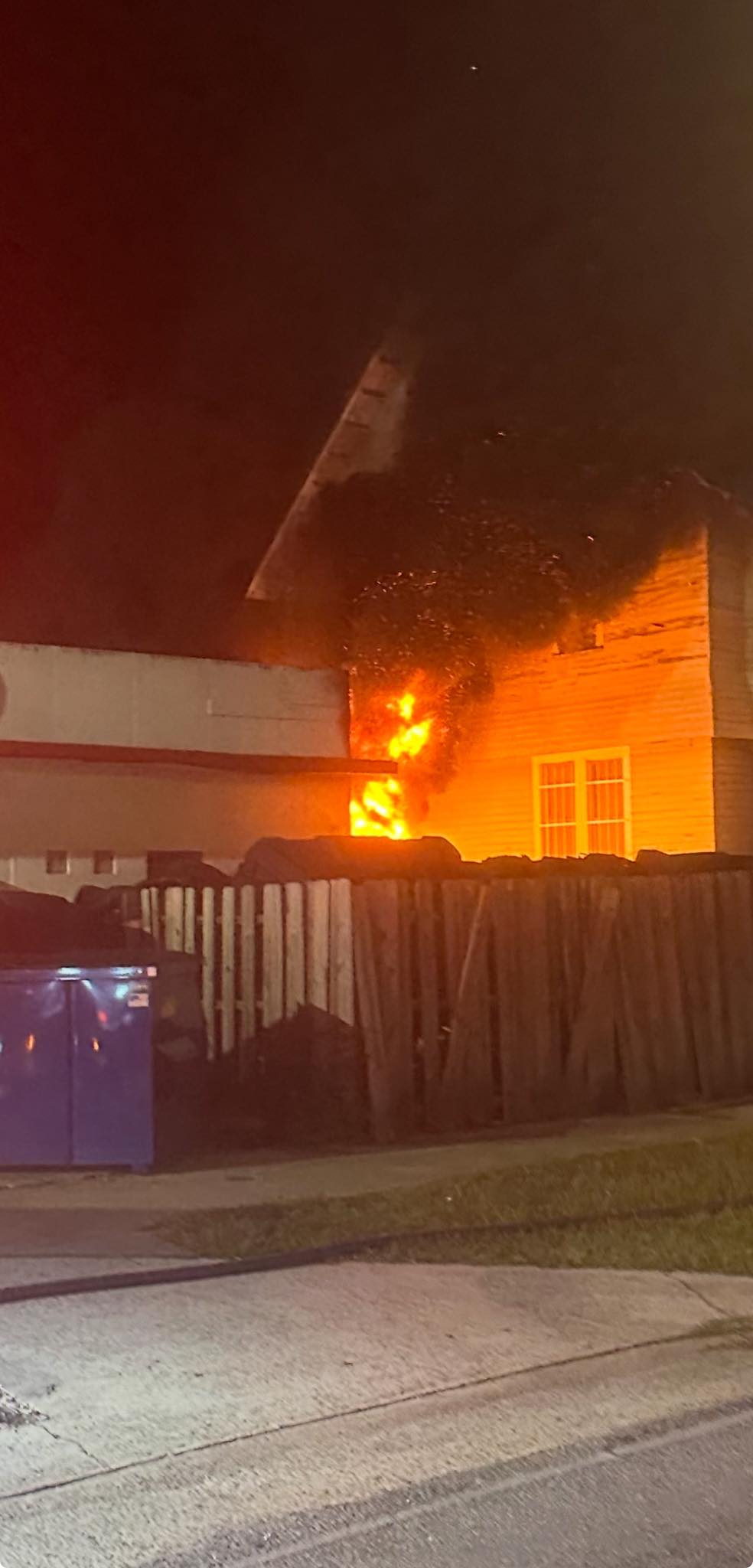Above and Beyond: South Health teams up against COVID-19
Published 1:30 pm Monday, April 27, 2020

- Submitted PhotoKenneth Lowery is the epidemiologist for the Department of Public Health South Health District. He contacts patients who have been diagnosed with COVID-19 and provides guidance for them.
VALDOSTA – “The most important thing to remember in all of this is that all of our staff play a critical role in this response,” Kristin Patten said.
Patten is the public information officer for the Department of Public Health South Health District.
Trending
The department has been working long hours in the midst of the COVID-19 pandemic and has become a daily source of information.
In fighting a disease threatening people’s lives, Patten said the entire department makes the effort.
“Whether they are on the frontlines, helping man our hotlines or providing essential services at our clinics,” she said, “everyone is crucial and everyone is stepping up above and beyond.”
The endeavor includes the district’s nurses for the women, infant and children’s program, as well as administrative assistants, she said.
South Health District serves 10 counties and acts under the direction of an executive leadership team spearheaded by Dr. William Grow, health director.
Other team members are Dwain Butler, district program manager and deputy health director; Chris Foreman, human resources manager; Teresa Giles, district administrator; and Lisa Thomas, district clinical and nursing director.
Trending
The leadership group holds regular meetings to decide best processes, practices and goals for South Health, Patten said.
“During this pandemic, they are particularly important because they must manage our response to the public health emergency while advocating for our employees’ safety and good will,” she said.
Facing the growing number of positive COVID-19 cases provides Kenneth Lowery, district epidemiologist, a direct account of how rapidly the virus spreads, he said.
Lowery is responsible for speaking to people affected by COVID-19, following up with confirmed cases and high-risk exposures in South Health’s coverage area.
He calls patients to gather knowledge of symptoms, travel and possible exposures. Once this information is collected, he tells them how they can move forward.
His next steps include contacting others and workplaces considered to be a high-risk exposure.
“I can’t stress to everyone enough how important it is to stay home unless absolutely necessary, wear a mask when you do go out and to follow all other (Centers for Disease Control) guidelines,” Lowery said. “The only way we will slow the spread of COVID-19 is if we all work together.”
The collaboration at South Health resumes through the emergency preparedness team, an assembly of individuals who manage the district’s specimen point of collection sites.
Patients wanting to be tested for COVID-19 through these sites must be referred to a location by a physician. Specimen are collected and sent to an external source for testing.
The team sends daily reports to Georgia’s task force concerning the status of the SPOC sites, according to the district.
Emergency preparedness members communicate with local emergency management agencies, first-responder agencies and health care partners.
“One of the most important aspects of our role in emergency preparedness and response is our relationships with our community partners,” Lauren Bewley, emergency preparedness director, said. “Strong partnerships … are crucial to what we do every day, whether or not we are responding to a disaster.”
South Health’s clinical department mans the SPOC sites. Patten said these employees are on the frontline of COVID-19.
Consisting of health department and clinical program staff members, the clinical team communicates with the public.
“They are the faces that local communities are used to speaking to and seeing, and they all work each day to do what is best for their communities,” Patten said.
Clinical members field the questions and concerns of callers, swab for COVID-19 and administer birth control.
“The South Health District staff of all programs, health initiatives, and health clinics are the heart of our district. Our employees are the faces that serve our communities and the forerunners throughout this pandemic,” said Lisa Thomas, district nursing and clinical director.
“The staff’s fortitude and their ability to persevere during these challenging times together is what makes public health great. Their commitment to their communities and to serve the public is remarkable.”
Grow said in a past report that the pandemic has limited some employees causing an internal readjustment.
Clinical staffers are presently assisted by six members of the environmental health team at the SPOC sites while an environmental health specialist helps Lowery with calling patients.
Patten said the environmental health team has visited doctors’ offices to hand-deliver information coming from the SPOC sites, as well as giving guidance to food service establishments.
South Health’s communications department remains in contact with the general public through COVID-19.
Aside from interacting with local media, comms members have helped residents get the answers they seek during the pandemic.
“Our health departments field a ton of calls with questions and concerns every single day,” Patten said. “In communications, we try and take some of that work off of them and help handle those phone calls as often as possible.”
The financial department may not be on the frontline serving the public but Patten affirms it is important to the district’s pandemic response.
She said finance staff guarantees the district has allocated and available funding for necessary services.
“They work with the state office to determine budgets for this response, and at the end of the day, they are what ensures that our invoices are paid timely, our lights stay on and our employees get paid,” Patten said.
“The logistics portion of the EP team also works with the finance department to coordinate supplies and ensure that they get to the right place at the right time.”
Staff affected personally by the pandemic are supported by the human resources department while information technology staff has helped the district adjust to video conferencing in efforts to stay in touch with SPOC sites.
“We also have many programs who are not currently able to offer many of their services because of limitations on home visiting,” Patten said. “These programs have been a huge help in making sure that our hotlines are manned every day we are open, as well as stepping up to help with any other needs that we have as a district. … Everyone is going above and beyond.”
Visit https://southhealthdistrict.com for more information.





